It was December 30, 2015, and I’d had enough. Quit the jobs (all three of them); convinced my son to post to Facebook three or four times a week under my account; found another fat, bald, gray-bearded schlub to pose in family pictures and call Mom every day. Checked myself in to the Extended Sleep Clinic at the Med Center and let them put me on a propofol drip (same shit that killed Michael Jackson, only not as much of it). Slept through 2016.
Woke up three days ago. Bowie and Prince are dead. Merle Haggard is gone, too. Maurice White. Sharon Jones. Rudy Van Gelder. Muhammad Ali. Jack Veasey. Glenn Frey. Leon Russell. Leonard Cohen. Even since I woke up, George Michael and Carrie Fisher have died, also. And my God—Donald Trump is the President-Elect? Aided and abetted by Russians? His would-be Cabinet is a virtual Suicide Squad of malevolent bomb-throwers. Perhaps stranger still, Bob Dylan is a Nobel laureate. And, of course, the Cubs won the World Series, doubtless fulfilling some prophecy I’m not aware of.
I’m having trouble absorbing all of this. I should’ve paid for the two-year nap.
All year long, the wife dropped off vinyl for the technicians to play in my room as I hibernated. Helped with maintaining a healthy subconscious—lucid dreaming and all. Several albums resonated particularly deeply with me.
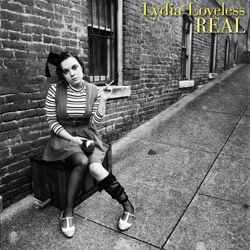 Lydia Loveless is building toward a masterpiece, first with 2014’s Somewhere Else and this year with Real, an extension and evolution of her cow-punk/Americana ethos, shot through with very rockish production flourishes and dynamics. You’d expect these things to hold the listener at a more distant remove, but in fact the songs are more engaging with the production and arrangements, bringing the listener in closer to the intimacies they describe, the stories they tell. But the whole thing is a little jarring first time through. ”Heaven” is poppy and danceable; ”Cry Love” and ”Bilbao” are slow and brooding; ”Same to You” has skittering verses that open up into a loud, lovely chorus. It all comes together, though; it all makes sense when taken together, over repeated listenings. I can’t wait to hear what she does next; it should be special.
Lydia Loveless is building toward a masterpiece, first with 2014’s Somewhere Else and this year with Real, an extension and evolution of her cow-punk/Americana ethos, shot through with very rockish production flourishes and dynamics. You’d expect these things to hold the listener at a more distant remove, but in fact the songs are more engaging with the production and arrangements, bringing the listener in closer to the intimacies they describe, the stories they tell. But the whole thing is a little jarring first time through. ”Heaven” is poppy and danceable; ”Cry Love” and ”Bilbao” are slow and brooding; ”Same to You” has skittering verses that open up into a loud, lovely chorus. It all comes together, though; it all makes sense when taken together, over repeated listenings. I can’t wait to hear what she does next; it should be special.
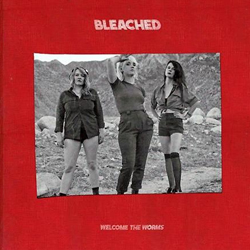 We all could use some straight-up, flat-out rock and roll sometimes (at all times?) so it was great to have Bleached’s Welcome the Worms spinning through most of the summer. Punky, poppy grrrrl rock straight from the garage (the one with Kim Deal and Pretenders posters on the walls), built on stacks of Ramones and Sleater-Kinney records, fed through car speakers cranked way too loud, so you can hear the music over the sounds of the wind whipping by. I have no idea who this band is or how long they’ve been around, but I hope they have more records like this in them.
We all could use some straight-up, flat-out rock and roll sometimes (at all times?) so it was great to have Bleached’s Welcome the Worms spinning through most of the summer. Punky, poppy grrrrl rock straight from the garage (the one with Kim Deal and Pretenders posters on the walls), built on stacks of Ramones and Sleater-Kinney records, fed through car speakers cranked way too loud, so you can hear the music over the sounds of the wind whipping by. I have no idea who this band is or how long they’ve been around, but I hope they have more records like this in them.
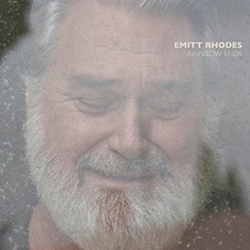 I can’t think of a more unexpected return to recording than Emitt Rhodes (maybe if Sly Stone came back, or Bill Withers). Rainbow Ends is a perfect return to form, putting his reedy, conversationalist’s voice over a bed of Laurel Canyon pop arrangements, circa 1973 (not coincidentally, the last time Rhodes released a record). It sounds better than it reads—think of Glen Campbell’s return to recording a few years back, only instead of interpreting the work of other songwriters, Rainbow Ends gives us eleven new Emitt Rhodes originals. They’re lovely and he sounds terrific—a vulnerable narrator telling stories of love and loss. It’s a great record.
I can’t think of a more unexpected return to recording than Emitt Rhodes (maybe if Sly Stone came back, or Bill Withers). Rainbow Ends is a perfect return to form, putting his reedy, conversationalist’s voice over a bed of Laurel Canyon pop arrangements, circa 1973 (not coincidentally, the last time Rhodes released a record). It sounds better than it reads—think of Glen Campbell’s return to recording a few years back, only instead of interpreting the work of other songwriters, Rainbow Ends gives us eleven new Emitt Rhodes originals. They’re lovely and he sounds terrific—a vulnerable narrator telling stories of love and loss. It’s a great record.
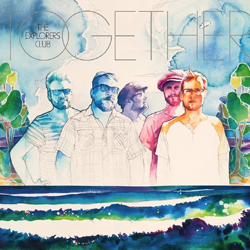 The Explorers Club delivered another slice of pure California pop with Together, a record full with sweet sixties harmonies and songs that practically throw sunlight out of your speakers. And though some might complain that the album is merely an homage to an earlier time or to one of the great pop songwriters in Brian Wilson, I think that’s as good a reason as any to put out a record. Listen to the intricacies of ”Be Around”’s vocal arrangement and hear a master (in this case, head Explorer Jason Brewer) at work. ”Don’t Waste Her Time” is the kind of layered pop production that few even attempt anymore, and it gives me goose bumps every time I hear it. Throughout the record, voices appear out of the ether, dance with one another, then fade away, giving way to other voices, or paving the way for their own return. Together is a great headphones/earbuds album, when you just want to let the music wash over you.
The Explorers Club delivered another slice of pure California pop with Together, a record full with sweet sixties harmonies and songs that practically throw sunlight out of your speakers. And though some might complain that the album is merely an homage to an earlier time or to one of the great pop songwriters in Brian Wilson, I think that’s as good a reason as any to put out a record. Listen to the intricacies of ”Be Around”’s vocal arrangement and hear a master (in this case, head Explorer Jason Brewer) at work. ”Don’t Waste Her Time” is the kind of layered pop production that few even attempt anymore, and it gives me goose bumps every time I hear it. Throughout the record, voices appear out of the ether, dance with one another, then fade away, giving way to other voices, or paving the way for their own return. Together is a great headphones/earbuds album, when you just want to let the music wash over you.
The Pixies are one of those bands who have three or so acknowledged classics—records everyone agrees are great—and then a smattering of albums that fans argue about endlessly, sometimes viciously.
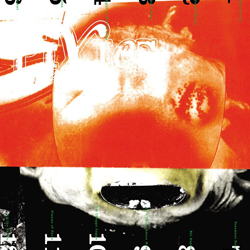 ”I put on Trompe Le Monde last night. Reminded me of good—”
”I put on Trompe Le Monde last night. Reminded me of good—”
”Trompe Le Monde sucks. It sucks balls.”
”Fuck you. You like Bossanova, and Bossanova blows.”
”You’re gonna tell me you don’t like Velouria?’ Say it—say you don’t like Velouria,’ asshole.”
”I don’t mind Velouria.’ I mean, it’s no Bone Machine,’ but—”
”Bone Machine’ is great. Surfer Rosa’s so amazing.”
”Yeah. Yeah, Surfer Rosa’s great.”
[Resume making out]
So, I don’t want to piss anybody off or start any arguments (this is the Internet, after all—a peaceful place for contemplation and good vibes), but I really like Head Carrier. I like the fact that Paz Lenchantin is a Pixie; I like that ”Oona” sounds like the lead single off the soundtrack to a Nineties-themed teen show that doesn’t exist; I like that ”Um Chagga Lagga,” the actual lead single off this record, makes me dangerous in traffic; I like the drama in the album-closing ”All the Saints,” both in the lyrics and the sorta-sad melody. I like, in general, hearing Black Francis give voice to his surrealist musings and fits of whimsy, and I like that the album hangs together like an album—an honest-to-Charles-Thompson 35-minute artistic statement, from Side One, Track One, through Side Two, Track Six (the packaging is great, too), unlike 2014’s EP compilation Indie Cindy. Not that I want to piss off any Indie Cindy fans. Um … isn’t ”Bone Machine” great?
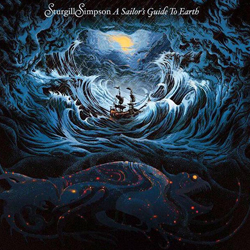 Sturgill Simpson amps up his psychedelic cowboy thing on A Sailor’s Guide to Earth, which seems at cross-purposes with the theme of the album—to serve as an intimate letter to his newborn son. It works, though, because the songs are strong enough to stand up to whatever arrangement or production curveball Simpson throws at them, and because Simpson’s voice is a thing of nature and beauty. It occurs to me that this is what Shooter Jennings has been trying to do for years—to mix country blood with material outside the genus, to create a serum against the Florida Georgia Lines of the world. Problem is, Jennings’ records often come off as contrived, where Simpson’s alchemy (on this record and 2014’s Metamodern Sounds in Country Music) never seems forced. May he mix and cook his creations forever.
Sturgill Simpson amps up his psychedelic cowboy thing on A Sailor’s Guide to Earth, which seems at cross-purposes with the theme of the album—to serve as an intimate letter to his newborn son. It works, though, because the songs are strong enough to stand up to whatever arrangement or production curveball Simpson throws at them, and because Simpson’s voice is a thing of nature and beauty. It occurs to me that this is what Shooter Jennings has been trying to do for years—to mix country blood with material outside the genus, to create a serum against the Florida Georgia Lines of the world. Problem is, Jennings’ records often come off as contrived, where Simpson’s alchemy (on this record and 2014’s Metamodern Sounds in Country Music) never seems forced. May he mix and cook his creations forever.
 The delicate nature of Bon Iver’s first two LPs appealed to my occasional need for quietude, meditation, stillness, etc. This year, though, Justin Vernon decided to make his own Kid A, but by then I had already slipped silently out the back door, into the waiting embrace of Austin’s Penny & Sparrow, whose Let a Lover Drown You filled my need for quiet quite nicely. Side Two, in particular, contains some of the most beautiful music I heard all year, particularly in the swirl of ”Until Tomorrow” and the sway of ”Unfold” and the resignation of ”Each to Each.” Side One has its own moments of beauty, as well (”Gold,” ”Bed Down”). Andy Baxter’s trembling baritone and Kyle Jahnke’s close high harmony are perfectly nestled in ex-Civil Wars singer John Paul White’s multi-hued production. Let a Lover Drown You is Penny & Sparrow’s best record thus far, and a perfect template for future work.
The delicate nature of Bon Iver’s first two LPs appealed to my occasional need for quietude, meditation, stillness, etc. This year, though, Justin Vernon decided to make his own Kid A, but by then I had already slipped silently out the back door, into the waiting embrace of Austin’s Penny & Sparrow, whose Let a Lover Drown You filled my need for quiet quite nicely. Side Two, in particular, contains some of the most beautiful music I heard all year, particularly in the swirl of ”Until Tomorrow” and the sway of ”Unfold” and the resignation of ”Each to Each.” Side One has its own moments of beauty, as well (”Gold,” ”Bed Down”). Andy Baxter’s trembling baritone and Kyle Jahnke’s close high harmony are perfectly nestled in ex-Civil Wars singer John Paul White’s multi-hued production. Let a Lover Drown You is Penny & Sparrow’s best record thus far, and a perfect template for future work.
 Lori McKenna is best known as a writer of other people’s country hits, and last year she penned a great one for Tim McGraw, a missive of advice for a child called ”Humble and Kind,” which tugged at the heartstrings just enough to register, but not enough to slip into sap. This is a big deal in contemporary country, where it seems the stars of the genre are either extolling the virtues of cheap beer and asses in Daisy Dukes, or pining after hearth and home and Mama’s cookin’. And while that statement might seem rife with stereotypes, stereotypes are quite often handy and accurate, particularly when what’s held up as authentic to the genre is no more authentic country than were the Nineties boy bands these acts resemble. Enter Lori McKenna (and Margo Price and Courtney Marie Andrews and Paul Cauthen, among others), whose songs have to find space in this shit show. While it’d be gratifying to hear the stuff on The Bird & the Rifle played in arenas and stadiums, I’d rather hear McKenna play ”Humble and Kind” than McGraw, because the sentiments seem truer coming from her voice than his. Other tracks from this wonderful record deserve the applause of wider audiences, from the somewhat cynical sentimentality of ”We Were Cool” and ”Giving Up on Your Hometown” to the astutely observed ”Old Men Young Women.” Nashville should roll out the red carpet for this woman.
Lori McKenna is best known as a writer of other people’s country hits, and last year she penned a great one for Tim McGraw, a missive of advice for a child called ”Humble and Kind,” which tugged at the heartstrings just enough to register, but not enough to slip into sap. This is a big deal in contemporary country, where it seems the stars of the genre are either extolling the virtues of cheap beer and asses in Daisy Dukes, or pining after hearth and home and Mama’s cookin’. And while that statement might seem rife with stereotypes, stereotypes are quite often handy and accurate, particularly when what’s held up as authentic to the genre is no more authentic country than were the Nineties boy bands these acts resemble. Enter Lori McKenna (and Margo Price and Courtney Marie Andrews and Paul Cauthen, among others), whose songs have to find space in this shit show. While it’d be gratifying to hear the stuff on The Bird & the Rifle played in arenas and stadiums, I’d rather hear McKenna play ”Humble and Kind” than McGraw, because the sentiments seem truer coming from her voice than his. Other tracks from this wonderful record deserve the applause of wider audiences, from the somewhat cynical sentimentality of ”We Were Cool” and ”Giving Up on Your Hometown” to the astutely observed ”Old Men Young Women.” Nashville should roll out the red carpet for this woman.
 There have times in my life, particularly in the last few years, when the only voice that makes sense to me is that of Bob Mould. The thick timbre of it, usually cast against a wall of distortion, locks into—dare I say it—my soul, or whatever passes for it, and I’m able to think more clearly, to feel stronger, to love more deeply. It’s weird and sounds absurd, but there it is. In ”Daddy’s Favorite,” from this year’s Patch the Sky, the voice and the fuzz meld together, as if the latter was trying to drown the former, to no avail. The result is a wave that crashes, hard, to the heart, even before one can make out the lyrics, which are shot through with pain. Same thing happens in ”Black Confetti,” only this time, the drums hold the wave in place, keeping the song together until the solo section, when everything breaks loose and releases. Mould is also a melodist; ”Hold On” and ”The End of Things,” in particular, are pop songs drenched in the fuzzy chords. Pull back on the distortion though, and you have ditties you could hum, if humming were appropriate. But it all gets back to the voice, the intimate whispers and anguished howls that have for 28 or so years soundtracked this movie I’m forced to play in; I’m grateful for that voice, for the clarity and strength it provides me.
There have times in my life, particularly in the last few years, when the only voice that makes sense to me is that of Bob Mould. The thick timbre of it, usually cast against a wall of distortion, locks into—dare I say it—my soul, or whatever passes for it, and I’m able to think more clearly, to feel stronger, to love more deeply. It’s weird and sounds absurd, but there it is. In ”Daddy’s Favorite,” from this year’s Patch the Sky, the voice and the fuzz meld together, as if the latter was trying to drown the former, to no avail. The result is a wave that crashes, hard, to the heart, even before one can make out the lyrics, which are shot through with pain. Same thing happens in ”Black Confetti,” only this time, the drums hold the wave in place, keeping the song together until the solo section, when everything breaks loose and releases. Mould is also a melodist; ”Hold On” and ”The End of Things,” in particular, are pop songs drenched in the fuzzy chords. Pull back on the distortion though, and you have ditties you could hum, if humming were appropriate. But it all gets back to the voice, the intimate whispers and anguished howls that have for 28 or so years soundtracked this movie I’m forced to play in; I’m grateful for that voice, for the clarity and strength it provides me.
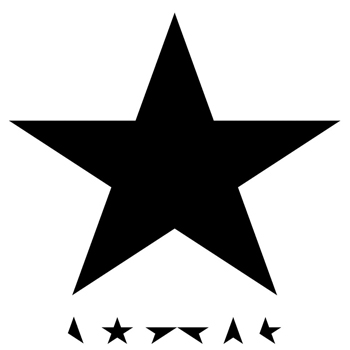 Bowie. Blackstar. What can you say? By the time it was released, he very likely was bed-ridden, never again to rise in this life, never again to sing, never again to please and startle us, occasionally confuse us; always engage us. His spirit was very likely pushing against the walls of a body that had finally, definitively broken down, rendered itself a husk ready for its inevitable decay. Cancer is a worm that eats its host from the inside out; most of the time the only way to kill it is to let it kill the host; once it has feasted completely on the organs, slaked itself on blood, wrapped itself around the brain, the lungs, the heart, sapped each of function or movement or power; only then does the cancer itself die.
Bowie. Blackstar. What can you say? By the time it was released, he very likely was bed-ridden, never again to rise in this life, never again to sing, never again to please and startle us, occasionally confuse us; always engage us. His spirit was very likely pushing against the walls of a body that had finally, definitively broken down, rendered itself a husk ready for its inevitable decay. Cancer is a worm that eats its host from the inside out; most of the time the only way to kill it is to let it kill the host; once it has feasted completely on the organs, slaked itself on blood, wrapped itself around the brain, the lungs, the heart, sapped each of function or movement or power; only then does the cancer itself die.
Only this time the host was David Bowie, the beloved shapeshifter whose last message to the universe in this life was a barely disguised farewell, a tangle of sound and rhythms and words that had to be listened to, intently, to be understood. Four times through the record the weekend after its release left one only with the first inkling of what it was about; twenty times through the title track—that beautiful ten-minute thicket of stuttering beats, hallucinatory vocal and pointed yet disparate instruments—provided one with hours of contemplation. It was impossible to get it out of one’s head, once one listened to it.
That was Friday through Sunday. Monday morning came the announcement from his family, that he was gone. Stories seeped out from his inner circle like moisture from a cellar wall. His producer and friend Tony Visconti knew of his condition; the players on the record knew he was sick, but his presence and performances were so robust, they had no idea of the extent of his illness. He had written Blackstar as a sendoff out of this plane of existence (”You canny bastard,” Visconti is said to have told him, ”You’re writing a farewell album.”). By last November, Bowie knew he was terminal, but, figuring he still had several months left, he contacted Visconti to work on new music, a follow-up to Blackstar. Not long after, he fell ill again, this time for good.
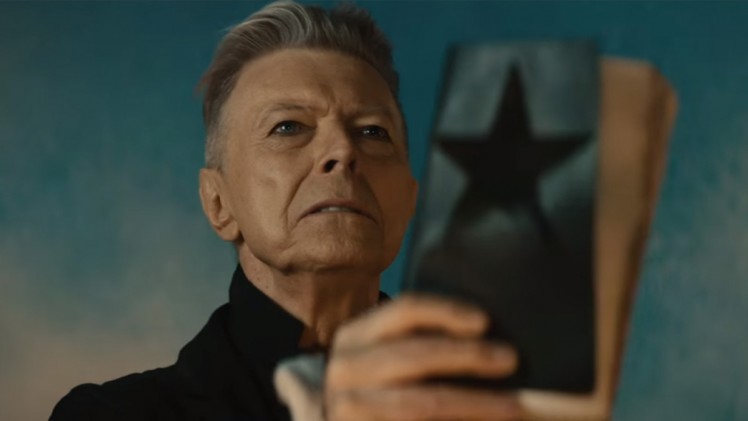 Bowie peppered the record with allusions to mortality. ”Dollar Days” shows him coming to peace with the possibility of never reaching a yearned-for destination (”If I’ll never see the English evergreens I’m running to / It’s nothing to meet / It’s nothing to see”), recognizing the inevitable (”I’m dying too”). ”Lazarus” makes the end game even more explicit—”Look up here, I’m in heaven / I’ve got scars that can’t be seen”—while pitting a smooth, bass-heavy groove against distorted slabs of guitar.
Bowie peppered the record with allusions to mortality. ”Dollar Days” shows him coming to peace with the possibility of never reaching a yearned-for destination (”If I’ll never see the English evergreens I’m running to / It’s nothing to meet / It’s nothing to see”), recognizing the inevitable (”I’m dying too”). ”Lazarus” makes the end game even more explicit—”Look up here, I’m in heaven / I’ve got scars that can’t be seen”—while pitting a smooth, bass-heavy groove against distorted slabs of guitar.
But it’s that amazing title track that seems to encapsulate the fullness of the experience of crossing over, out of this life, into the unknown Inevitable. The staticky, skittering opening sequence with the trippy doubled vocal, the narrator looking around to see a solitary candle at a ceremony, an execution where ”only women kneel and smile.” The hallucination gives way about four and a half minutes in, into the truly majestic second section:
Something happened on the day he died
Spirit rose a meter and stepped aside
Somebody else took his place, and bravely cried:
(I’m a blackstar, I’m a blackstar)
How many times does an angel fall?
How many people lie instead of talking tall?
He trod on sacred ground, he cried aloud into the crowd
(I’m a blackstar, I’m a blackstar, I’m not a gangstar)
Churchy keyboards provide the bed for Bowie’s voice, with guitar arpeggios filling in for harps as the narrative lifts through the clouds. That refrain—”I’m a blackstar”—threads through a phase of declamation, which goes from a shrug (”I can’t answer why / Just go with me”) to bragging (”I’m the great I Am”) in the course of seconds. Eventually that swirl empties into the sun, and he’s still bragging (”I’m a blackstar, way up, on money, I’ve got game”) before returning to the ”Something happened on the day he died” verse to settle the listener into a new perch, one floating on nothing but thin, thin air, before the declaiming swirl begins again.
The song closes where it began, at the ceremony, but the stuttering beat has been replaced with the groove of the rest of the song. Bowie’s voice recedes and the music takes over—flute, keyboard, guitar, electronic bleeps, fluttering like breath, while the drums slow, slow, slow …
… and stop, like a pulse winding down at the end of life …
… like a rhythm fallen away …
… into a long, long rest.
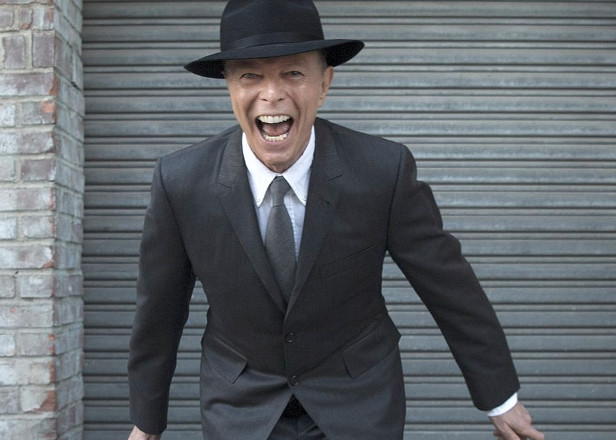





Comments